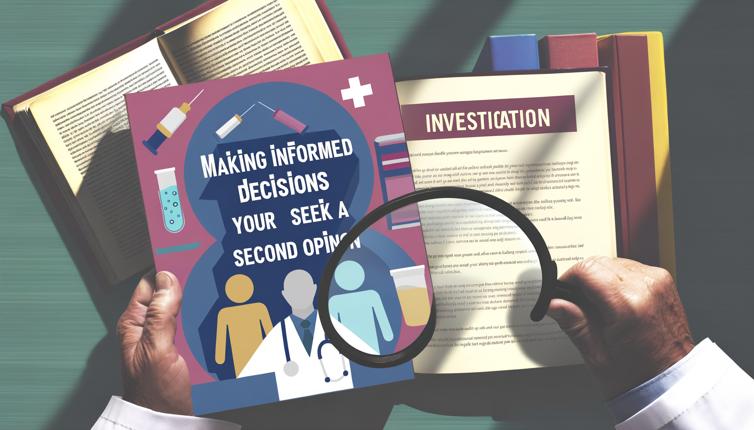What is a Second Opinion?
A second opinion is when you consult another healthcare professional for their assessment of your condition or treatment plan. It involves seeking advice or input from a different doctor or specialist to validate or challenge the initial diagnosis or proposed treatment.,A second opinion can be helpful in many situations, including when:,1. You have been diagnosed with a serious or complex medical condition.,2. You are facing a major medical procedure or surgery.,3. You have been recommended a treatment plan that you are unsure about.,4. You have received conflicting opinions from different healthcare providers.,5. You are seeking alternative treatment options.,Overall, a second opinion can provide peace of mind and help you make a more informed decision about your health.
When Should You Seek a Second Opinion?
While seeking a second opinion can be advantageous in various situations, it's important to know when it is most beneficial. Here are some scenarios in which you should consider seeking a second opinion:,1. Serious or complex medical conditions: If you have received a diagnosis for a serious or complex medical condition, such as cancer or a chronic illness, it is wise to seek a second opinion. The complexity and potential long-term impact of these conditions make it crucial to gather multiple expert perspectives.,2. Major medical procedures or surgeries: When facing a major medical procedure or surgery, it's a good idea to consult another healthcare professional. This can help ensure that you have explored all your options and are fully informed about the risks and benefits of the procedure.,3. Uncertainty about treatment plans: If you have been recommended a treatment plan that you are unsure about or have concerns regarding its effectiveness or side effects, seeking a second opinion can provide clarity and help you make a more confident decision about your healthcare.,4. Conflicting opinions: If you have received conflicting opinions from different healthcare providers, seeking a second opinion can help you understand the differing perspectives and choose the most appropriate course of action for your health.,5. Alternative treatment options: If you are interested in exploring alternative treatment options, seeking a second opinion can help you gather different perspectives and determine the best path for your well-being.,It's important to remember that seeking a second opinion does not mean you are questioning the expertise or competence of your current healthcare provider. It is simply a way to gather more information and ensure that you are making the most informed decision.
How to Seek a Second Opinion
If you have decided to seek a second opinion, here are some steps you can take to make the process smoother:,1. Research other healthcare professionals: Look for doctors or specialists who specialize in the specific condition or procedure you are seeking a second opinion for. Consider their expertise, qualifications, and reputation.,2. Gather your medical records: Collect all relevant medical records, test results, and treatment plans to share with the healthcare professional you will be consulting. This will help them evaluate your case more effectively.,3. Schedule an appointment: Contact the healthcare professional's office to schedule an appointment. Explain that you are seeking a second opinion and provide them with any necessary information.,4. Prepare questions: Before your appointment, make a list of questions or concerns you have regarding your condition or treatment plan. This will ensure that you cover all important topics during your consultation.,5. Discuss your options: During the appointment, openly discuss your current situation, previous diagnosis, and treatment plan. Be sure to ask about alternative options and any potential risks or benefits associated with different approaches.,6. Evaluate the second opinion: After receiving the second opinion, take the time to carefully review and compare it with the initial diagnosis or treatment plan. Consider the different perspectives and weigh the pros and cons of each.,Remember, seeking a second opinion is your right as a patient. It is essential to find a healthcare professional who listens to your concerns, takes the time to explain things clearly, and provides you with the necessary information to make an informed decision about your health.
Conclusion
In conclusion, seeking a second opinion can provide valuable insights and information that can help you make more informed decisions about your health. It is particularly beneficial in situations involving serious or complex medical conditions, major procedures or surgeries, uncertainty about treatment plans, conflicting opinions, and the exploration of alternative options. By following the steps outlined in this article, you can confidently seek a second opinion and ensure that you are taking control of your healthcare journey.








